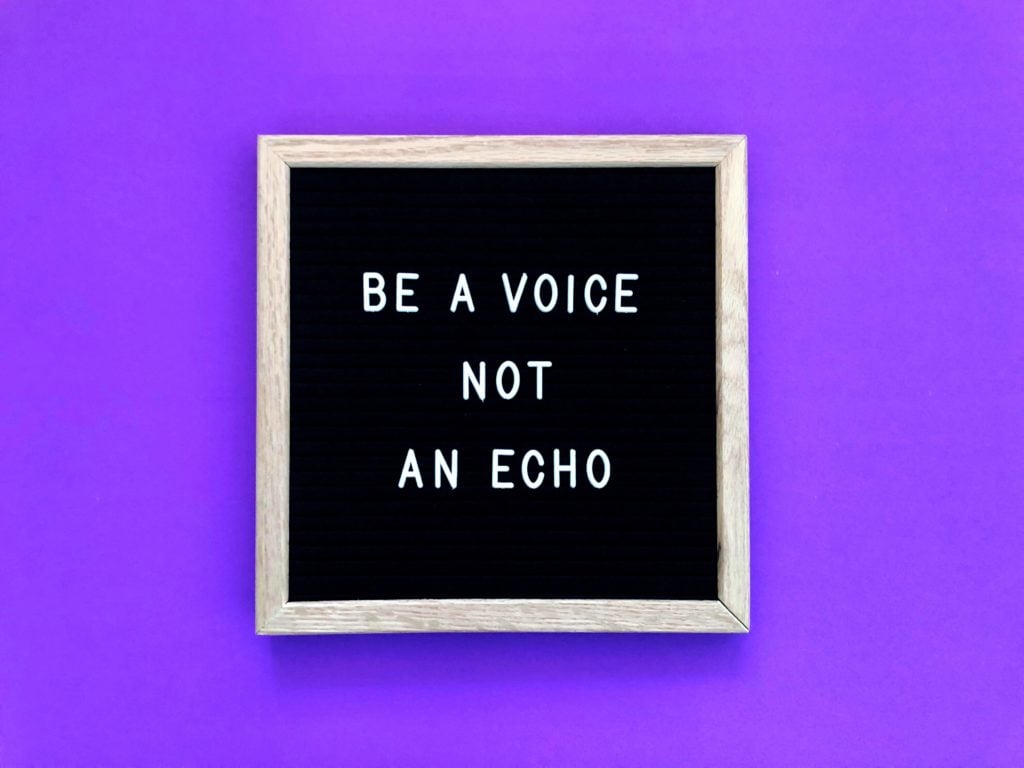Gender and communication: Are we really that different?

This article is part of a series giving practical tips to build a successful career. This week, Patrycja discusses gender and communication in the workplace, what works against us and how to fix it.
By Patrycja Riera, CEO Inclusionem
Gender equality is still far from where we should and want to be. We are underrepresented in the C-suite, receive lower salaries, less likely to be promoted and no matter how much we talk about the challenge worldwide, this is not changing fast enough. So, I wonder… Are gender and communication linked? Are men and women really that different, is one a better communicator than the other? And how can we progress? Could small wins be more effective?
I have worked for a few months with a female client on improving her confidence when communicating to senior people and her new team. She inspired me to look more in depth into the different ways men and women communicate and how it often impact our career progression.
Image is important and we need to pay more attention to the way we are perceived by senior leaders, who actually take decisions of who moves up or out. Not only to our intention, but mostly to the impact of our verbal and non verbal communication.
Here are some research statements that I believe are important to share and reflect on as women in the workplace.
Asking Questions

Women are likely to downplay their certainty while men are likely to minimize their doubts.
Even though asking great questions is probably one of the most important characteristics of a good manager, how and when we ask those questions sends signals about our competence and power.
Very often the person who asks a lot of questions can be categorised as incompetent. Asking questions is good, but you need to think about how often and what type of questions you ask and to who. It impacts your perceived confidence and your evaluation by those who very often are important for your next step.
We often ask questions because they unlock learning and improve interpersonal bonding, however, when you work with people more senior than you, they often don’t have time for doubt and explanations.
You need to provide them with concise information and a direct question to understand your challenge and how they can answer it.
Apologies.

A simple phrase I’m sorry..
Apologies tend to be viewed differently by those for whom status implications of exchanges are important. For example, the research shows that many men avoid apologies or the phrase “I am sorry” because it makes them feel in an inferior position in the conversation.
On the opposite, women tend to say I am sorry more often, as this is the way they often express their concern. However, when used too often, we may end up appearing weaker and less confident comparing to our male colleagues.
Saying “I am sorry” works well when both parties are aligned on what the phrase means.
Use the phrase “I am sorry” to apologize or admit fault. In other words, accepting responsibility for errors and admitting mistakes, but don’t use it when you want to ask a question or need something from your manager. Simply say “I need a few minutes of your time” rather than, “I am sorry…do you have a few minutes for me”.
Getting Credit

We did it well and the team was fantastic..
Who gets credit in the room? According to research, even a very small but impactful linguistic strategy affects who is noticed in the room and gets credit.
For example, how often do you use “I” or “we” when you speak about your achievements?
I heard many of my male clients saying, “I delivered this project really well and before the deadline”, and my female clients saying, “we did this project so well”.
Caring for a team and acknowledging their contributions is important, however, how do you think others notice that you actually did it?
For many women, saying “we” instead if “I” is important because they don’t want to come across self-promoting. And I get it – I have been there as well and to be honest, I still find myself saying “my team” instead of “I”. But I also noticed that saying “we” in the past got me nowhere and I needed to value myself above others in specific and strategic interactions with others.
Own your success and give yourself credit where you should.
Listen, Notice and Copy

People in powerful positions are likely to reward linguistic styles similar to their own.
I have spent at least 100 hours working with clients to improve their confidence and authority when dealing with more senior people and each one of them always came up with this one learning “if I want to communicate effectively and be noticed, I need to learn how to mirror their style, give them what they need.”
No matter where you work and who is your manager, the higher-ranking person always has the power to implement his/her view on us, and in particular his/her communication style.
As much as we want to be authentic self, we often do need to adjust to the person we are talking to. We all communicate differently in different settings. We also communicate differently with our subordinates, colleagues and with our boss.
When dealing with very senior leaders or clients, pay particular attention to how they communicate, how long are their sentences, their tone, vocabulary so to communicate back in a similar manner. Without losing your personality, mirroring someone’s communication style will help connect with him/her and get your voice heard more effectively.
The place to start is to understand your intention and match your words and actions to create the intended impact.
Sources
Gender Communication Theories and Analyses: From Silence to Performance, by Charlotte Krolokke and Anne Scott Sorensen
The Gender Communication Connection by Teri Kwal Gamble and Michael W. Gamble
Gender Differences and Similarities in Management Communication: A Meta-Analysis by Brenda M. Wilkins, Peter A. Andersen
